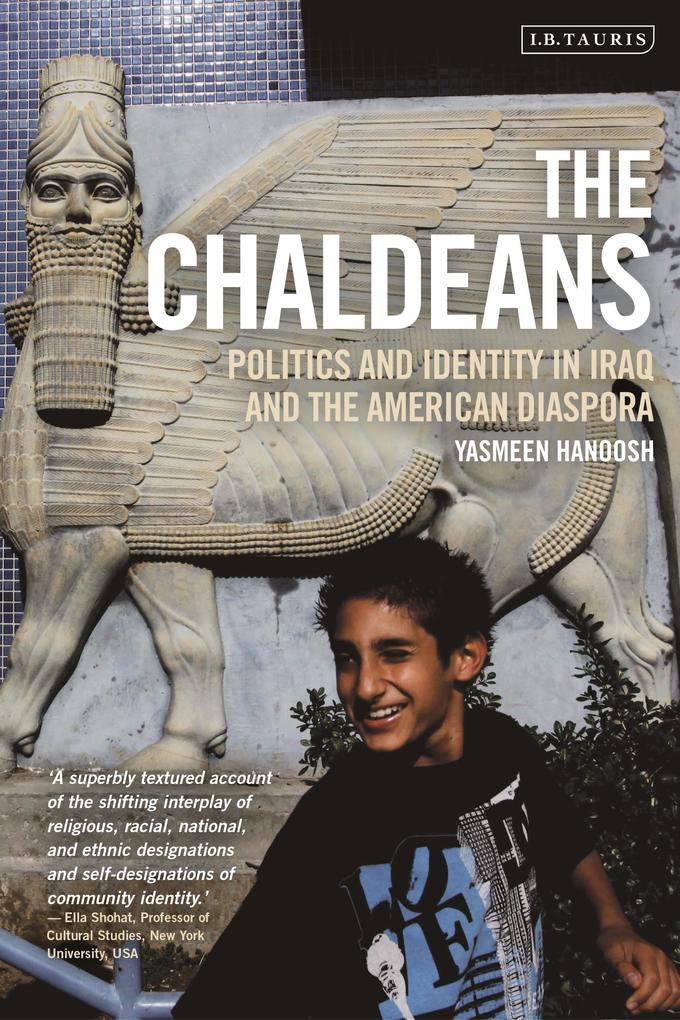
Zustellung: Mo, 14.07. - Sa, 19.07.
Versand in 3-4 Wochen
VersandkostenfreiBestellen & in Filiale abholen:
Modern Chaldeans are an Aramaic speaking Catholic Syriac community from northern Iraq, not to be confused with the ancient Mesopotamian civilization of the same name. First identified as 'Chaldean' by the Catholic Church in the sixteenth century, this misnomer persisted, developing into a distinctive and unique identity. In modern times, the demands of assimilation in the US, together with increased hostility and sectarian violence in Iraq, gave rise to a complex and transnational identity. Faced with Islamophobia in the US, Chaldeans were at pains to emphasize a Christian identity, and appropriated the ancient, pre-Islamic history of their namesake as a means of distinction between them and other immigrants from Arab lands. In this, the first ethnographic history of the modern Chaldeans, Yasmeen Hanoosh explores these ancient-modern inflections in contemporary Chaldean identity discourses, the use of history as a collective commodity for developing and sustaining a positive community image in the present, and the use of language revival and monumental symbolism to reclaim association with Christian and pre-Christian traditions.
Inhaltsverzeichnis
Dedication
Figures
Abbreviations
Acknowledgements
Introduction
1. On the Politics of Appellation: The Making of the Modern Chaldeans 27
2. Archaeology, Philology and Mission: The Modern History of Ancient Chaldean History
3. Arab/Chaldean/Assyrian Distinctions: Political Survival in the New Nation State of Iraq
4. From Religious to Ethnic Minority: Between Iraq and America in the Twentieth Century
5. Family, Marriage and Ethnic Economy: A Transnational Social Field Perspective
6. The Modern Chaldean Church: Global Circuits of Ecclesial Power
7. A Safe Haven Dream: Home between Detroit and the Nineveh Plain
8. Chaldeanness: The Official Narrative and its Changing Displays
Epilogue: Centre and Peripheries of Chaldeanness in the Twilight of the Nation State
Appendix: Appellations and Languages
Notes
Works Cited
Index
Figures
Abbreviations
Acknowledgements
Introduction
1. On the Politics of Appellation: The Making of the Modern Chaldeans 27
2. Archaeology, Philology and Mission: The Modern History of Ancient Chaldean History
3. Arab/Chaldean/Assyrian Distinctions: Political Survival in the New Nation State of Iraq
4. From Religious to Ethnic Minority: Between Iraq and America in the Twentieth Century
5. Family, Marriage and Ethnic Economy: A Transnational Social Field Perspective
6. The Modern Chaldean Church: Global Circuits of Ecclesial Power
7. A Safe Haven Dream: Home between Detroit and the Nineveh Plain
8. Chaldeanness: The Official Narrative and its Changing Displays
Epilogue: Centre and Peripheries of Chaldeanness in the Twilight of the Nation State
Appendix: Appellations and Languages
Notes
Works Cited
Index
Mehr aus dieser Reihe
Produktdetails
Erscheinungsdatum
30. Mai 2019
Sprache
englisch
Seitenanzahl
336
Reihe
Bloomsbury 3PL
Autor/Autorin
Yasmeen Hanoosh
Verlag/Hersteller
Produktart
gebunden
Gewicht
647 g
Größe (L/B/H)
234/156/19 mm
ISBN
9781788313698
Bewertungen
0 Bewertungen
Es wurden noch keine Bewertungen abgegeben. Schreiben Sie die erste Bewertung zu "The Chaldeans" und helfen Sie damit anderen bei der Kaufentscheidung.


































